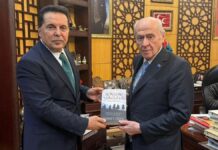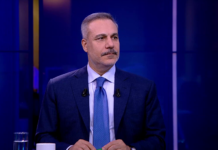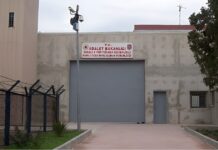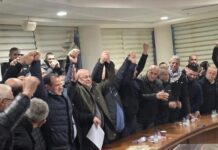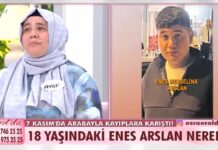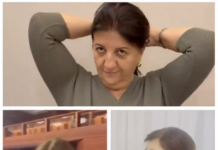Ceren Kenar
The Turkish original of this article was published as Benim için öldürme on 8th September 2015.
Despite all the horrific news from Dağlıca about so many of this country’s youth dying in a PKK ambush, the media somehow engineered an incredible manipulation to place words that President Erdoğan did not utter at the top of the agenda.
A common initiative by papers like Hürriyet, Zaman and Cumhuriyet brought about a sudden change of agenda. Expressions that were subsequently shown to be false were accorded truth status.
The hurt of losing these martyrs and the identity of the killers were suddenly relegated to the background.
Even opposition leader Kılıçdaroğlu cited not the PKK but Erdoğan by name while condemning the attack. This is not a sudden fit of insanity. This is an election campaign. It is part of the election campaign of a party that refuses to distance itself from the PKK, whose leader threatens the Turkish army, whose parliamentary representatives keep smuggling arms for militants. It is an attempt to protect the HDP’s image.
It is an effort to shift the blame for this sinful war and for the devastation caused by unbridled violence onto a single politician in order to absolve the HDP and the PKK of any responsibility in this terrible outcome.
Why should the PKK lay down its arms under such circumstances? When it is not being held responsible for its massacres, when its murders are not being talked about, why should the PKK try to change its present structure? If, as it keeps killing, it is the president that ends up getting the blame, why should the PKK put an end to its murders?
The “Cihangir circle” [of the left-liberal intelligentsia — tr. note] seem to have long made up their minds about a war that doesn’t touch them in the slightest and whose price they are never going to be paying.
It is as if they have been able to take a deep breath and relax when the PKK sabotaged a peace process that they were recently belittling and refusing to support. Yesterday they were smashing the AKP over the Peace Process that it had initiated, and today they are smashing it over the truce that the PKK has terminated and the new armed conflict that that has triggered.
But so, what about the Kurds who every day are experiencing the war at first hand? The Kurds who are more profoundly affected by the conflict than anybody else? What is going through their minds?
What are they, the Kurds, thinking about a brutal organization that is hostile to politics, that has violated a process which had brought peace and quiet to the region, and which sees it fit to make Kurdish kids into warriors?
Of course there is no such homogenous groups as “all Kurds.” They have differing views on the PKK and HDP. Nevertheless, the question is whether, in their search for their future, the Kurds are going to expose themselves to the manipulation of those political groups who fundamentally believe that “Turkey belongs to the Turks,” and who have actually parted company with the AKP over the Solution Process.
In yesterday special TRT Kurdî broadcast, journalist İbrahim Yörük was talking about how people have taken to the streets in Şırnak to protest the Dağlıca attack.
An Al Jazeera team interviewing people in Diyarbakır’s Suriçi neighborhood were told by local residents: “They killed two policemen right in front of my door. I am burning deep inside; the sons of this land are falling one by one.” In Şırnak, a soldier and his family whom the PKK were trying to kidnap were rescued from their grasp when the people of Şırnak themselves stepped in.
Where both the Solution Process and military operations have failed, the Kurds are the only force capable of making the PKK lay down its arms.
Just as the people of Turkey have fought for years to overcome military tutelage, now it is absolutely imperative for the Kurds to confront their own military tutelage.
A struggle has to be launched to transform the Kurdish political movement from a PR act for military tutelage to something corresponding to a Kurdish Democrat Party tradition.
For the most powerful weapon capable of coping with Kurdish militarism is a “do not kill in my name” call to come from the Kurds themselves.


